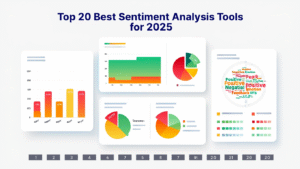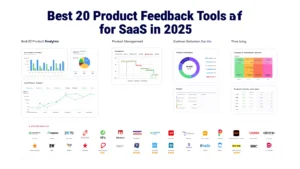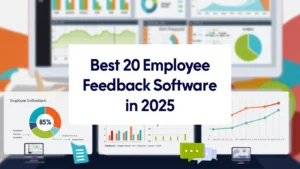Event management is a vital component of the events industry, involving the planning, coordination, and execution of various types of events. From corporate conferences to weddings and public festivals, event management ensures that every detail is carefully handled to create a successful and memorable experience. At Pearl Lemon Experiences, we specialize in delivering expert event management services tailored to meet diverse needs.
What is Event Management?
Event management refers to the process of organizing and overseeing events from start to finish. This involves a range of activities including planning, budgeting, coordinating logistics, and executing the event. Event managers are responsible for ensuring that all aspects of an event run smoothly, meeting the objectives set by their clients. Their role includes handling everything from venue selection and catering to managing staff and addressing any issues that arise during the event.
Event Management vs Event Planning
While often used interchangeably, event management and event planning have distinct differences:
- Event Planning: This primarily involves the initial stages of organizing an event. Event planners focus on designing the event concept, creating timelines, selecting vendors, and handling logistics. They work on the detailed planning stages to ensure that all elements align with the client’s vision.
- Event Management: This encompasses the entire process, including the execution and post-event activities. Event managers oversee the day-of operations, coordinate with vendors, manage the event team, and troubleshoot any issues that arise. They ensure that the event runs smoothly and meets the set objectives.
What are Different Aspects of Event Management?
Event management is a comprehensive process that involves several crucial aspects to ensure the success of an event. Here’s a more detailed look at the different aspects involved:
Planning
Planning is the foundational stage of event management where the overall concept and details of the event are developed.
- Objective Setting: Define the goals and objectives of the event. What is the purpose of the event? What are the desired outcomes?
- Budgeting: Create a detailed budget that covers all anticipated expenses, including venue, catering, entertainment, and staffing. Ensure the budget aligns with the event’s goals and scope.
- Timeline Creation: Develop a timeline that outlines key milestones and deadlines. This includes planning the event date, booking vendors, and scheduling meetings.
- Event Concept: Design the theme, format, and agenda of the event. This could involve selecting a theme, creating a schedule of activities, and outlining key content or presentations.
Coordination
Coordination involves organizing and managing all elements required for the event to function smoothly.
- Venue Selection: Choose an appropriate venue based on the event’s size, location, and requirements. Ensure the venue meets all logistical needs and is accessible to attendees.
- Vendor Management: Identify and liaise with vendors such as caterers, decorators, AV suppliers, and transportation providers. Negotiate contracts and manage their services.
- Logistics: Plan and manage the practical aspects of the event, including setup, seating arrangements, transportation, and technical requirements. Ensure all logistical elements are in place for the day of the event.
- Staffing: Recruit and manage event staff, including volunteers, security personnel, and support staff. Assign roles and responsibilities to ensure smooth operation.
Execution
Execution is the phase where all the planning and coordination come together to bring the event to life.
- On-Site Management: Oversee the event on the day, ensuring everything is running according to plan. Address any issues that arise promptly.
- Coordination of Activities: Manage the schedule and flow of activities, including presentations, performances, or networking sessions. Ensure that all parts of the event are running as planned.
- Attendee Management: Handle guest registrations, check-ins, and assist attendees with any needs or concerns. Ensure a positive experience for all attendees.
Evaluation
Evaluation involves assessing the success of the event and identifying areas for improvement.
- Feedback Collection: Gather feedback from attendees, vendors, and staff through surveys or interviews. This helps in understanding their experience and satisfaction.
- Performance Analysis: Review the event’s performance against the initial objectives and budget. Analyze data such as attendance numbers, engagement levels, and financial outcomes.
- Reporting: Prepare a detailed report on the event’s success, including achievements, challenges faced, and recommendations for future events. Use this information to refine and improve future event management strategies.
By effectively managing these aspects, event managers ensure that every detail is addressed, resulting in a well-organized and successful event. Whether it’s a corporate conference, a wedding, or a public festival, a thorough approach to planning, coordination, execution, and evaluation is key to delivering memorable and impactful events.
Key Components of Event Management
The main components of event management include:
- Budgeting: Setting and managing the event budget to ensure that all expenses are accounted for and within limits.
- Venue Selection: Choosing the right location that fits the event’s needs and accommodates all attendees.
- Vendor Management: Coordinating with vendors such as caterers, decorators, and audiovisual suppliers to ensure all services are delivered as required.
- Logistics: Handling the practical aspects of the event, including transportation, seating arrangements, and technical requirements.
- Staffing: Recruiting and managing the event team to ensure all roles and responsibilities are covered.
- Promotion: Marketing the event through various channels to attract attendees and build awareness.
Why Hire an Event Management Company?
Hiring an event management company can significantly enhance the planning and execution of your event. Here’s a detailed look at why engaging a professional event management company can be beneficial:
Expertise and Experience
Event management companies bring a wealth of knowledge and experience to the table.
- Professional Knowledge: They possess specialized skills in planning and executing various types of events, from corporate functions to weddings and large-scale public gatherings.
- Proven Track Record: Their experience with similar events allows them to anticipate potential challenges and handle them efficiently.
- Industry Contacts: Established relationships with vendors, venues, and suppliers can lead to better rates and higher-quality services.
Comprehensive Planning
Event management companies provide end-to-end planning services.
- Detailed Planning: They develop a comprehensive plan covering all aspects of the event, including budgeting, scheduling, and logistics.
- Customized Solutions: They tailor their services to meet your specific needs and preferences, ensuring that your vision for the event is realized.
- Risk Management: They identify potential risks and have contingency plans in place to handle unexpected issues.
Time and Stress Management
Outsourcing event management can alleviate the time and stress involved in organizing an event.
- Time Efficiency: Professional event managers handle all the details, freeing up your time to focus on other priorities or enjoy the event.
- Stress Reduction: They manage the complexities of event planning and execution, reducing the stress and pressure on you.
- Smooth Execution: With their expertise, they ensure that the event runs smoothly, allowing you to enjoy the event without worrying about the details.
Budget Management
Event management companies help in effective budget management.
- Cost Control: They provide detailed budget planning and management to ensure that the event stays within budget.
- Value for Money: Their industry knowledge helps in negotiating better rates with vendors and suppliers, maximizing your budget.
- Expense Tracking: They track all expenses and provide transparent financial reports, helping you avoid overspending.
Creative and Innovative Ideas
Event managers bring creativity and innovation to your event.
- Unique Concepts: They offer fresh and creative ideas to make your event stand out and align with your brand or personal preferences.
- Trend Awareness: They stay updated with the latest trends and technologies in event management, incorporating modern elements into your event.
- Tailored Experiences: They design personalized experiences that resonate with your target audience or guests.
Efficient Coordination
Event management companies excel in coordinating various elements of an event.
- Vendor Coordination: They manage communication and coordination with all vendors, ensuring that services are delivered as promised.
- On-Site Management: They oversee the event on the day, managing logistics, handling issues, and ensuring everything runs according to plan.
- Staff Management: They organize and supervise event staff, ensuring that all roles and responsibilities are covered.
Post-Event Analysis
After the event, event management companies provide valuable insights and analysis.
- Feedback Collection: They gather feedback from attendees and stakeholders to assess the event’s success.
- Performance Evaluation: They analyze the event’s performance against objectives and provide recommendations for future improvements.
- Detailed Reporting: They provide a comprehensive report on the event, including successes, challenges, and areas for growth.
Hiring an event management company offers a range of benefits, from professional expertise and detailed planning to creative ideas and stress reduction. Their comprehensive services ensure that your event is well-organized, successful, and memorable. At Pearl Lemon Experiences, our team of experienced professionals is dedicated to making your event a success, handling every detail so you can focus on enjoying the experience.
What is Event Management Software?
Event management software is a digital tool designed to streamline the event planning and management process. It helps event managers handle various aspects of an event, including:
- Registration and Ticketing: Managing attendee registrations, ticket sales, and check-ins.
- Scheduling: Creating and tracking event schedules, timelines, and tasks.
- Budgeting: Tracking expenses and managing budgets.
- Communication: Facilitating communication between event teams, vendors, and attendees.
- Analytics: Providing data and reports on event performance and attendee engagement.
Event management software improves efficiency, reduces manual tasks, and ensures that all aspects of the event are well-organized.
Conclusion
Event management is a multifaceted process that ensures the smooth execution of events from conception to completion. By understanding the key components, differentiating between event management and event planning, and utilizing the right tools and services, you can create successful and memorable events. At Pearl Lemon Experiences, our team is dedicated to providing expert event management solutions to meet your needs and deliver exceptional results. Whether you’re organizing a corporate event or a private celebration, our team is here to help every step of the way.
Frequently Asked Questions
Hiring an event management company brings professional expertise, experience, and a network of industry contacts. They handle the complexities of event planning, saving you time and reducing stress, while also ensuring the event is executed effectively and professionally.
The cost varies depending on the scope and scale of the event, the services required, and the company’s fees. Many event management companies offer customized packages to fit different budgets. It’s important to discuss your budget upfront to ensure the services provided align with your financial constraints.
Event management companies can handle a wide range of events, including corporate functions, weddings, conferences, product launches, parties, and public festivals. They tailor their services to meet the specific needs of each type of event.
Services typically include event planning and coordination, budgeting, venue selection, vendor management, logistics, on-site management, and post-event analysis. Specific services can vary based on the company and the event’s requirements.
Success is typically measured based on the achievement of event objectives, attendee satisfaction, and adherence to the budget. Event management companies gather feedback from attendees and stakeholders, analyze performance metrics, and provide a detailed report on the event’s outcomes.





